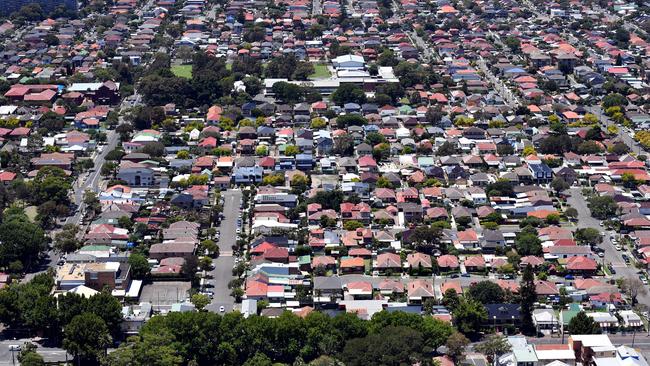Developers slow on projects as funding squeeze tightens
A wave of construction collapses and tough conditions means that few projects are getting started.
Confidence in the commercial property sector has lifted over the last quarter, but economic uncertainty is still hanging over activity, according to a survey by the National Australia Bank.
The index, which assesses views of top property executives, shows the industry is still weighed down by negative sentiment in retail and office markets, after they were slugged by higher rates and their tenants face tougher times.
New projects are also suffering with a well below average one in three property developers planning to start new building works in the next six months, and more property professionals saying funding conditions for both debt and equity were harder in the last quarter.
The wave of construction collapses and softer building approvals meant the number of property developers planning to start new works in the next six months was unchanged at a 3½ year low.
“With an apparent stabilisation in house prices, and very strong pick-up in housing demand as population growth rebounded since the reopening of international borders, the quarter saw a further up-tick in the number of developers planning to start new building works in the residential sector to 51 per cent,” bank chief economist Alan Oster wrote.
“However, below average numbers plan to start new works in the office (12 per cent) and industrial sectors (14 per cent) – despite expectations for ongoing shortages of industrial space. The number planning to start new works in the retail sector however improved to 10 per cent after dipping to a near survey low 6 per cent in the final quarter of 2022, but is still trending below the survey average (13 per cent),” Mr Oster wrote.

Funding projects is the major handbrake. The net number of property professionals who said it was harder to obtain borrowing or loans rose for the fourth straight quarter to a four-year-high.
Equity funding was also more difficult, with the number who said this was harder to obtain climbing sharply for the fifth consecutive quarter to a survey high.
The outlook is tough, with more property professionals believing that debt conditions in the next three to six months will be worse than now.
Overall, the NAB Commercial Property Index improved a little further in the quarter but was still negative, and was well down from the same period last year.
Sentiment was highest for CBD hotels, with property professionals reporting positive capital and room revenue growth during the quarter. Surprisingly, one time star industrial property, fell to its lowest level in over two years.
Office market sentiment is still very weak, but slightly improved, as deals are getting struck. The retail index was also up a little but still deeply negative, amid slowing spending.
Property players are moving cautiously until they know how quickly inflation moderates, as domestic pressures – including wage and rent growth – continue to build.
The NAB noted that the full impact of the rapid tightening in monetary policy is yet to be seen, and there is a risk that activity could slow more sharply than expected.
Against this backdrop, commercial property confidence levels for the next 12 months continued to be negative, with a two-year outlook measure unchanged at a well below average.






To join the conversation, please log in. Don't have an account? Register
Join the conversation, you are commenting as Logout